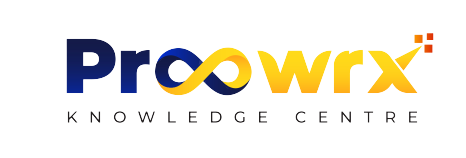In 2024, the mortgage business will be at a crossroads of innovation and transition, ushering in an era of technology developments, sustainability efforts, and regulatory adaptability. This blog delves into the broad mortgage trends that are altering the sector, guiding it towards greater efficiency and sustainable practices.
Digital Transformation
The primary trend defining the mortgage environment is the fast digital transformation of origination procedures. Lenders increasingly leverage new technology to expedite and improve the mortgage application and approval process. This innovation speeds up the process and provides potential homebuyers with a more seamless experience.
Lenders are heavily investing in cutting-edge mortgage processing systems to improve their origination workflows and ensure a quick and efficient application process. Digital tools and platforms streamline paperwork and verification procedures while reducing the possibility of mistakes, improving the overall borrower experience.
AI & ML
Risk assessment is being revolutionised by the incorporation of machine learning (ML) and artificial intelligence (AI) into the underwriting procedures. With the use of these technologies, lenders can quickly and accurately assess risk and make decisions by analysing large datasets. An industry-wide movement towards speedier and more accurate evaluations is occurring as underwriting support services use AI and ML.
The Green Mortgage Era
The emergence of green mortgages in the mortgage market is a reflection of the worldwide trend towards sustainability. Financial institutions are encouraging environmentally friendly behaviour by providing exclusive financing choices for households that use less energy. This is in line with the increasing awareness of environmental issues and gives lenders additional chances to meet the growing demand for environmentally friendly housing options.
One important aspect of the current mortgage trends is the “green mortgage era,” which represents a shared commitment to responsible and environmentally friendly homeownership. In addition to helping to preserve the environment, lenders that actively participate in this movement may reach a consumer group that is motivated by a desire for sustainable living.
Technological Evolution
The need for better client experiences is driving a significant technical change in mortgage service, which is characterised by growing automation. Lenders use sophisticated mortgage post-closure services to handle loans effectively following the closing procedure. Technology integration benefits borrowers by making services more transparent and easily available, rather than only being convenient for lenders.
One of the key elements of the larger mortgage trends that are influencing the future of the business is the technological advancements in mortgage service. Lenders are increasing operational efficiency and upgrading the borrower experience throughout the loan servicing phase by automating common operations and strengthening communication channels.
Challenges & Adaptions
The mortgage business is always faced with the issue of managing regulatory changes, given its highly regulated operating environment. Lenders are required to promptly adjust to the ever-changing requirements, and technology is essential to this process. Those who make significant investments in comprehensive regulatory compliance strategies and tools will be in a better position to successfully ride the regulatory waves.
One of the most important aspects of the dynamic mortgage trends that will shape the industry’s future is its ability to adapt to regulatory changes. Proactively addressing compliance issues and incorporating adaptable solutions into their business processes shows lenders that they are resilient and prepared to prosper in the face of regulatory uncertainty.
End Note
To sum up, the mortgage sector is undergoing a revolutionary stage characterised by digitalisation, sustainability, and regulatory flexibility. It is not only wise but also necessary for lenders to stay up to date with the complex mortgage trends if they want to prosper in this changing market. Encouraging sustainable living, adopting advanced servicing technologies, embracing digital origination, and navigating regulatory challenges—the mortgage industry is ready for a future where efficiency, sustainability, and technological innovation are given top priority. The industry’s trajectory is defined by the way these trends are collectively adopted, and it also determines the industry’s role in encouraging responsible and progressive homeownership.

